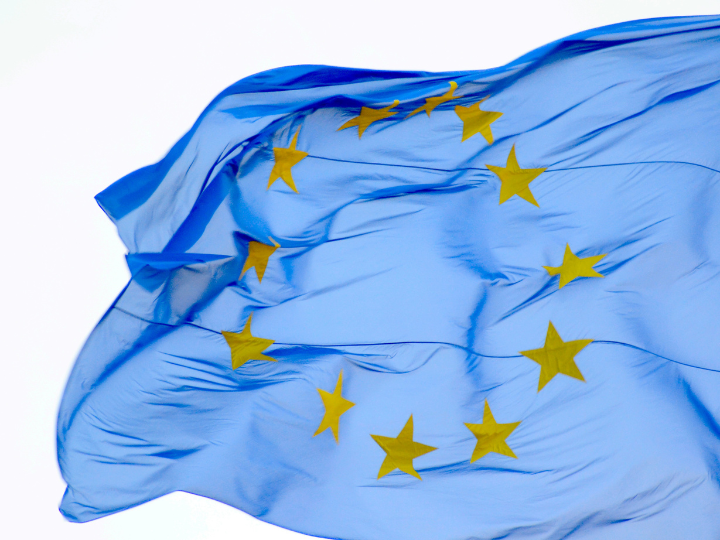by Thomas Moller-Nielsen
Europe must undergo “radical change” to remain competitive in the face of China and the United States’ refusal to “play by the rules” of international trade, the former president of the European Central Bank Mario Draghi said on Tuesday (16 April).
“Others are no longer playing by the rules, and are actively pursuing policies to enhance their competitive positions,” Draghi said at a conference on European social rights in La Hulpe, Belgium.
“Our response has been constrained because our organisation, decision-making, and financing are designed for the world of yesterday,” Draghi added, “Pre-COVID, pre-Ukraine, pre-conflagration in the Middle-East – pre- the return of great-power rivalry.”
“But we need a European Union that is fit for today’s and tomorrow’s world. What I’m proposing… is radical change.”
Draghi, who is drafting a much-anticipated report on the bloc’s competitiveness for the European Commission, due to come out at the end of June, specifically condemned China for “threatening to undercut” Europe’s industrial base by “attempting to capture and internalise all parts of the supply chain in green and advanced technologies”, which is leading to “significant overcapacity in multiple sectors”.
He also criticised the United States for attempting to “attract high value domestic manufacturing within their borders, including that of European firms, whilst using protectionism to shut out competitors”.
America’s massive green subsidy programme, the Inflation Reduction Act (IRA) signed by President Joe Biden in 2022, has triggered open fears of deindustrialisation among top EU officials.
‘Common threads’ for policy measures: scale, critical supplies, investment
Draghi’s speech, which comes a day before European leaders gather in Brussels for a two-day summit to discuss the bloc’s competitiveness, also outlined three “common threads for policy interventions” to ensure the long-term resilience of Europe’s economy.
These included “enabling scale”, particularly in the telecommunications and healthcare sectors, which will help EU firms “increase investment and capture market share”.
Draghi also urged policymakers to better “secure the supply of essential resources and inputs”, and recommended introducing “complementary measures” to support the bloc’s Critical Raw Materials Act, which aims to diversify the bloc’s supply of rare earths and other strategically key elements away from China.
Finally, he called on the EU to guarantee the provision of “public goods”, especially spending related to climate change, defence, and the integration of Europe’s “fragmented” energy grid.
Overall, despite noting the “important role” of the public sector in restoring the bloc’s competitive edge, Draghi stressed that “most of the investment gaps will have to be covered by private investments”.
To that end, Draghi stressed that deepening the Capital Markets Union (CMU) — a key focus of EU officials in recent months — will prove “indispensable” in leveraging the necessary private capital.
Draghi’s emphasis on the importance of private investment echoed comments he made in February, when he briefed EU officials that the bloc will have to spend an additional €500 billion per year to close the “investment gap” for the digital and green transitions alone – two-thirds of which, Draghi said, should come from the private sector.
Differing recipes to shore up EU competitiveness
Draghi’s speech comes amid increasing concerns about Europe’s competitiveness in recent months – which had prompted EU legislators to task him and Enrico Letta, another former Italian Prime Minister, with preparing two high-level reports on the state of play with the bloc’s economy.
GDP growth in Europe is projected to be multiple times lower this year than in the US, Russia, and China, as high interest rates, slowing Chinese demand, and US and Chinese industrial policies pose a growing threat to the bloc’s economy.
Europe’s weak economic performance has been especially pronounced in manufacturing and energy-intensive industries. Last month, the European Trade Union Confederation reported that nearly one million manufacturing jobs have been lost across the continent over the past four years.
Fears of Europe’s industrial decline were further compounded on Monday (15 April), when Eurostat, the EU’s official statistics office, reported that industrial production across the bloc in February was 5.4% lower compared to the same month last year.
By contrast, on Tuesday, China’s National Bureau of Statistics announced that industrial production in the first quarter was 6.1% higher compared to the same period in 2023.
Letta, who will present his report on the single market to EU leaders on Thursday (18 April), is poised to assign a much stronger role to public investment in tackling the issues afflicting the bloc’s economy.
In a leaked version of his study reported by Euractiv on Monday, Letta called for mobilising EU-level funding and a pan-European “state-aid” contribution scheme comparable to the US’s IRA to ensure the European economy and industries are sufficiently supported.
*first published in: Euractiv.com




 By: N. Peter Kramer
By: N. Peter Kramer
